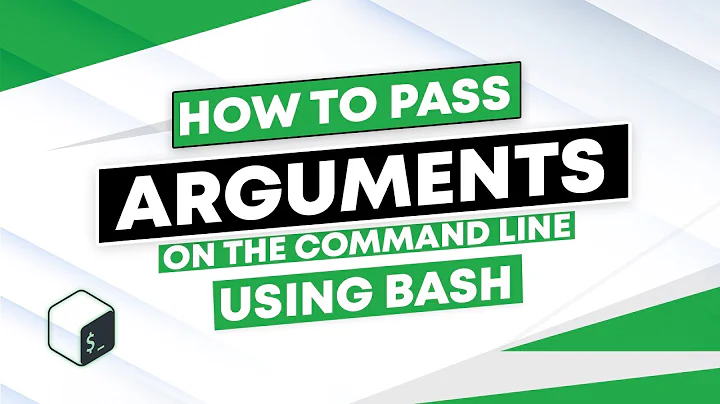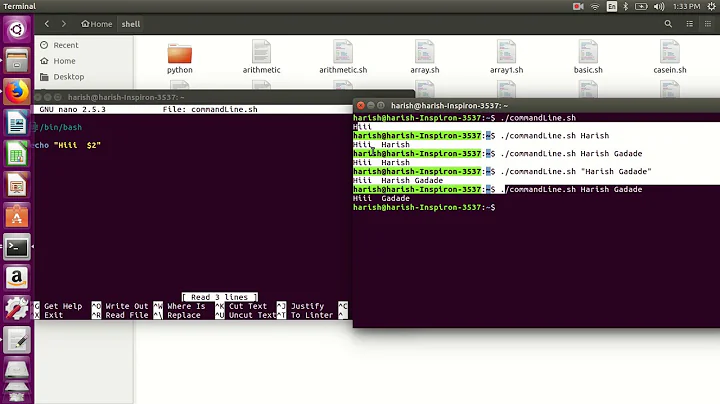How to use command line arguments in a shell script
19,489
You can access the command line arguments in your shell script with the special variables $1, $2 until $9. $0 is the name of your script.
If you need access more than 9 command line arguments, you can use the shift command. Example: shift 2 renames $3 to $1, $4 to $2 etc.
Please remember to put the arguments inside doubles quotes (e.g. "$1"), otherwise you can get problems if they contain whitespaces.
Related videos on Youtube
Author by
Phil_Charly
Kallithea city rocks. Listening Xatzifrageta now, plz not disturb.
Updated on September 18, 2022Comments
-
Phil_Charly almost 2 years
I have a shell script and when invoking it
./testit asks for an input.I 've seen a quicker way just by writing at once./test myInput,how is that achievable? -
Angel Todorov over 10 yearsYou can use "double-digit" parameters directly, just use braces:
echo ${12} -
DoxyLover over 10 yearsAlso,
$#gives you the number of arguments. For example, with./test.sh a b c,$#would evaluate to 3. -
crs1138 over 6 years@glennjackman – should I be using the quotes around the parameter as in
echo "${12}"or is the syntax sufficient asecho ${12}. What is the difference? -
Angel Todorov over 6 yearsUsing double quotes will prevent the shell from performing word splitting and filename expansion. Use of braces allows you to use double-digit positional parameters, and to disambiguate variable names from surrounding text.
-
Angel Todorov over 6 yearsDemo:
set -- one two three four five six seven eight nine ten eleven "12 twelve"; printf "%s\n" "${12}"; printf "%s\n" ${12}




